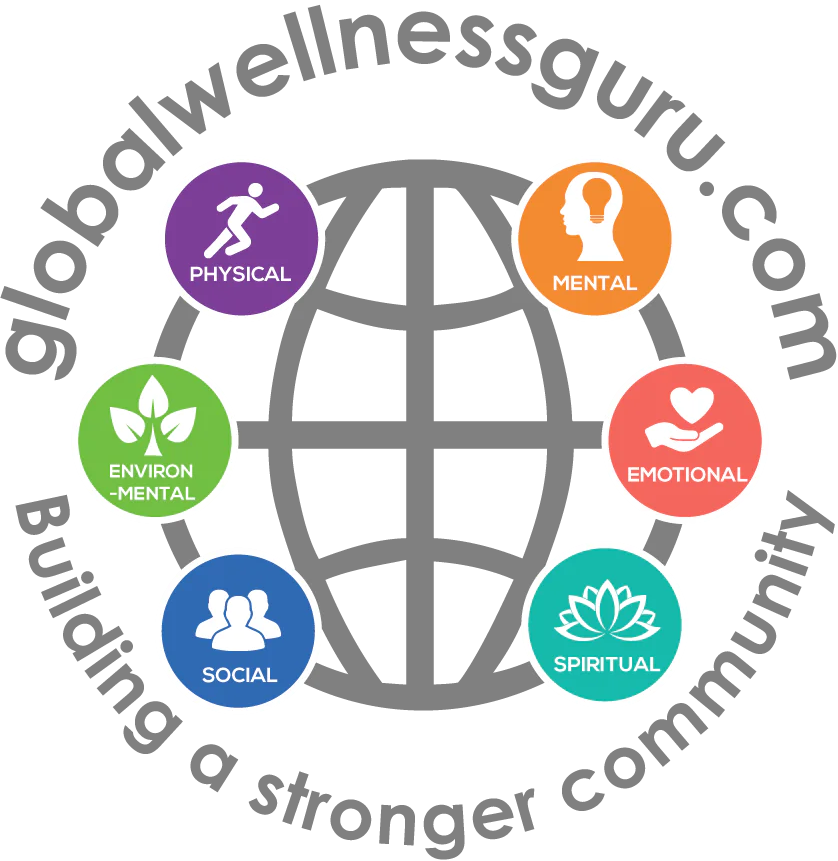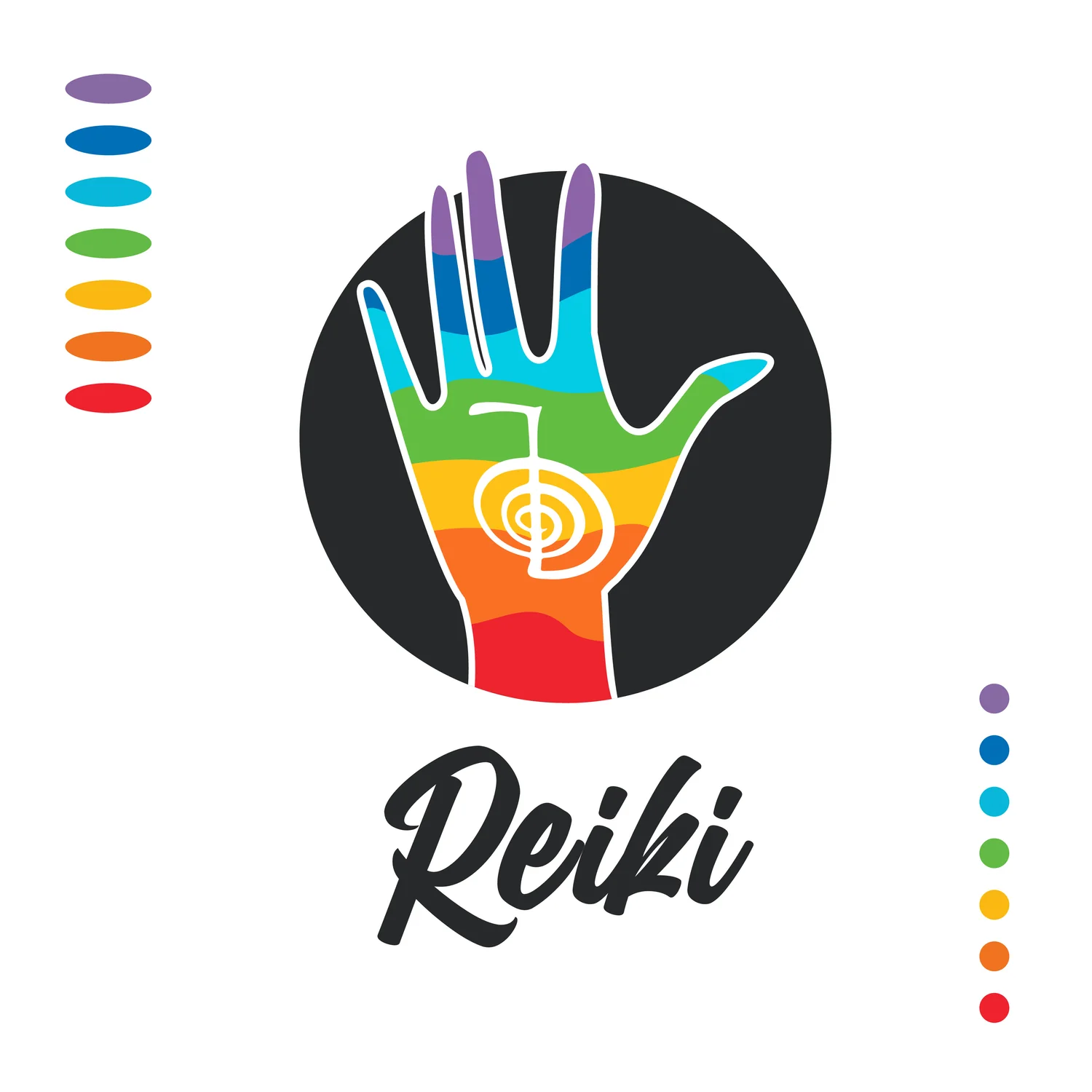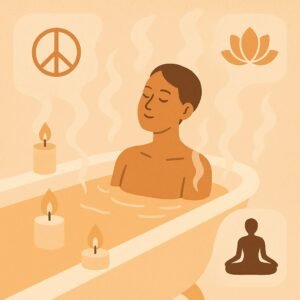Reiki, a Japanese energy healing technique, has been gaining popularity worldwide as a complementary therapy for pHealthy Lifestyle romoting overall well-being and Relaxation. This Healthy Lifestyle ancient practice involves a practitioner channeling universal life force energy through their hands to the recipient’s body, with the belief that it can stimulate the body’s natural healing abilities.
While Reiki is not a substitute for conventional medical treatment, many people have reported experiencing various benefits from this gentle, non-invasive approach. In this article, we’ll explore the potential benefits of trying Reiki for energy healing, backed by scientific research and anecdotal evidence.
Understanding Reiki: What Is It and How Does It Work?
Reiki is derived from the Japanese words “rei,” meaning universal, and “ki,” meaning life force energy. It is based on the belief that a person’s energy flow can become blocked or disrupted, leading to physical, emotional, or mental imbalances. The primary goal of Reiki is to remove these energy blockages and Healthy Lifestyle promote the free flow of energy, thereby facilitating the body’s natural healing processes.
During a Reiki session, the practitioner enters a state of deep Relaxation and acts as a conduit for the universal life force energy. They then use a series of Hand Positions, either directly on or above the recipient’s body, to channel this energy into the recipient. Reiki practitioners are trained to detect and address areas of energy imbalance or stagnation, allowing the energy to flow more freely.
While the mechanisms behind Reiki’s effectiveness are not fully understood from a Healthy Lifestyle scientific perspective, some researchers suggest that it may work by inducing a Relaxation response in the body, which can have positive effects on various physiological and psychological processes.

Benefits of Reiki for Energy Healing
1. Stress Reduction and Relaxation One of the most widely reported benefits of Reiki is its ability to promote deep Relaxation and reduce stress levels. A study published in the Journal of Alternative and Complementary Medicine in 2011 found that participants who received Reiki sessions experienced significant reductions in stress and anxiety levels compared to those in the control group[1][5].
Stress can have detrimental effects on both physical and mental health, contributing to conditions such as high blood pressure, headaches, digestive issues, and depression. By inducing a state Healthy Lifestyle of deep Relaxation, Reiki may help counteract the negative effects of stress and promote overall well-being.
2. Pain Management Reiki has shown promising results in alleviating various types of pain, including chronic pain, post-operative pain, and pain associated with certain medical conditions. A systematic review published in the Journal of Evidence-Based Complementary and Alternative Medicine in 2018 analyzed 12 randomized controlled trials and found that Reiki was effective in reducing pain levels, particularly in patients with chronic pain[2][7].
Researchers suggest that Reiki may work by influencing the body’s natural pain-relieving mechanisms, such as the release of endorphins and the regulation of inflammatory processes. Additionally, the Relaxation response induced by Reiki may also contribute to pain relief by reducing muscle tension and promoting overall physical and emotional well-being.
3. Improved Sleep Quality Poor sleep quality can have far-reaching consequences on physical and mental health, as well as overall quality of life. Reiki has been Healthy Lifestyle studied for its potential to improve sleep patterns and promote better sleep quality. A pilot study published in the Journal of Integrative Medicine in 2016 found that participants who received Reiki sessions reported significant improvements in sleep quality, sleep latency (the time it takes to fall asleep), and sleep duration[3].
The Relaxation and stress-reducing effects of Reiki are believed to play a role in improving sleep quality. By calming the mind and body, Reiki may help individuals fall asleep more easily and experience more restful, uninterrupted sleep.
4. Emotional and Mental Well-being Reiki has been associated with improvements in emotional and mental well-being, including reduced anxiety, depression, and overall mood disturbances. A study published in the Journal of Alternative and Complementary Healthy Lifestyle Medicine in 2018 found that participants who received Reiki sessions reported significant reductions in anxiety and depression levels compared to those in the control group[2][5].
The calming and balancing effects of Reiki may contribute to improved emotional regulation and a more positive overall mood. Additionally, the sense of connection and support experienced during a Reiki session may also contribute to emotional well-being by fostering a sense of inner peace and self-acceptance.
5. Enhanced Quality of Life By addressing various physical, emotional, and mental aspects of well-being, Reiki has the potential to improve overall quality of life. Several studies have investigated the effects of Reiki on quality of life, particularly in individuals with chronic conditions or undergoing medical treatments.
A study published in the Journal of Alternative and Complementary Medicine in 2015 found that cancer patients who received Reiki sessions reported significant improvements in their quality of life, including reduced fatigue, pain, and anxiety levels[3][6]. Another study published in the Journal of Holistic Nursing in 2016 found that Reiki sessions improved the quality of life and overall well-being of Healthy Lifestyle patients receiving palliative care[1][2][6].
By promoting Relaxation, reducing stress and pain, and supporting emotional and mental well-being, Reiki can potentially enhance an individual’s overall sense of vitality, contentment, and life satisfaction.
6. Complementary to Conventional Medical Treatments Reiki is considered a complementary therapy, meaning it can be used alongside conventional medical treatments without interfering with or replacing them. Many hospitals and medical centers have begun offering Reiki as a supportive therapy for patients undergoing medical treatments or managing chronic conditions.
A study published in the Journal of Alternative and Complementary Medicine in 2015 found that cancer patients who received Reiki sessions in addition to their standard medical care experienced significant improvements in pain, fatigue, and anxiety levels compared to those receiving only standard care[3].
By promoting Relaxation and well-being, Reiki may help individuals better Healthy Lifestyle cope with the physical and emotional challenges associated with medical treatments and chronic conditions, ultimately supporting their overall healing journey.
7. Holistic Approach to Well-being Reiki aligns with a holistic approach to well-being, recognizing the interconnectedness of the physical, emotional, mental, and spiritual aspects of an individual. By addressing energy imbalances and promoting the free flow of life force energy, Reiki practitioners aim to achieve a state of overall harmony and balance within the body and mind.
This holistic approach to well-being can be particularly beneficial for individuals seeking a more integrative and personalized approach to their health and wellness journey. Reiki can complement other holistic practices, such as meditation, yoga, and mindfulness techniques, to support overall well-being and personal growth.
What to Expect During a Reiki Session
If you’re considering trying Reiki for energy healing, it’s helpful to Healthy Lifestyle understand what to expect during a typical session. Here’s a general overview[4]:
1. Initial Consultation: Before your first Reiki session, the practitioner will likely have a brief consultation with you to understand your goals, concerns, and any relevant medical history. This helps the practitioner tailor the session to your specific needs.
2. Relaxation: You will be asked to lie down on a massage table or comfortable surface, fully clothed. The practitioner may play calming music or use other techniques to promote Relaxation.
3. Hand Positions: The practitioner will place their hands on or above specific areas of your body, following a series of Hand Positions. You may feel warmth, tingling, or a gentle pulsing sensation during this process.
4. Silence and Relaxation: During the majority of the session, you and the practitioner will remain silent to allow for deep Relaxation and the free flow of energy. The session Healthy Lifestyle typically lasts between 45 and 90 minutes.
5. Integration: After the session, the practitioner may provide you with time to slowly reintegrate and share any experiences or sensations you may have had. It’s important to note that Reiki is a gentle, non-invasive practice, and you should feel comfortable and relaxed throughout the session. If you experience any discomfort or have any concerns, be sure to communicate with your practitioner.
Finding a Qualified Reiki Practitioner
To ensure a safe and effective Reiki experience, it’s essential to find a qualified and experienced practitioner. Here are some tips for locating a reputable Reiki practitioner:
- Ask for recommendations: Consult with your healthcare provider, friends, or local holistic health centers for recommendations on reputable Reiki practitioners in your area.
- Check credentials: Look for practitioners who have received proper training and certification from a recognized Reiki organization or school. Reiki practitioners usually undergo several levels of training before becoming certified.
- Schedule a consultation: Before committing to a session, Schedule a consultation with the practitioner to discuss your goals, concerns, and ensure you feel comfortable with their approach.
- Trust your intuition: Pay attention to your gut feeling when interacting with potential practitioners. A good practitioner should make you feel at ease and respected.
- Consider experience: While not a guarantee, more experienced practitioners may have a better understanding of energy work and be able to provide a more tailored experience.
Integrating Reiki into Your Wellness Journey
Reiki can be a valuable addition to a holistic wellness journey, complementing other self-care practices and therapies. Here are some ways to integrate Reiki into your overall well-being:
- Regular sessions: Consider scheduling regular Reiki sessions as part of your self-care routine. The frequency can vary based on your needs and goals, but many people find benefit from monthly or bi-weekly sessions.
- Self-practice: Learn the basic principles of Reiki and practice self-treatment techniques at home. This can help reinforce the benefits of Reiki and promote a deeper connection with your energy.
- Combine with other therapies: Reiki can complement other holistic practices, such as massage, acupuncture, yoga, or meditation. Many practitioners offer integrated services combining multiple modalities.
- Lifestyle changes: Reiki can be a catalyst for positive Healthy Lifestyle Lifestyle changes, such as stress management, improved sleep habits, and a greater sense of mindfulness. Embrace these changes to enhance the benefits of your Reiki practice.
- Open communication: Maintain Open communication with your Reiki practitioner and healthcare providers to ensure a coordinated approach to your well-being.

Addressing Potential Concerns and Limitations
While Reiki is generally considered safe and non-invasive, it’s important to address potential concerns and limitations:
- Not a substitute for medical treatment: Reiki is a complementary therapy and should not replace conventional medical treatment for serious conditions or diseases. Always consult with your healthcare provider before starting any new therapy.
- Individual experiences may vary: Reiki is a highly Healthy Lifestyle personalized experience, and individual responses can vary. Some may experience profound benefits, while others may not notice significant changes immediately.
- Emotional release: Reiki can sometimes trigger an Emotional release or bring up past traumas or experiences. A qualified practitioner should be able to guide you through this process, but it’s important to be aware of this potential.
- Energy sensitivity: Individuals who are highly sensitive to energy may need to take precautions or adjust the intensity of the Reiki session as needed.
- Limited scientific evidence: While there is a growing Healthy Lifestyle body of research on Reiki’s potential benefits, scientific evidence is still limited, and more rigorous studies are needed to fully understand its mechanisms and efficacy.
It’s crucial to approach Reiki with an open mind and reasonable expectations. Communicate openly with your practitioner about any concerns or limitations, and always prioritize your safety and well-being.
The Power of Energy Healing
Reiki is rooted in the belief that our bodies are composed of energy Healthy Lifestyle fields that can become disrupted or imbalanced, leading to physical, emotional, or mental distress. Energy healing modalities like Reiki aim to restore balance and harmony within these energy fields, promoting overall well-being.
While the concept of energy healing may seem abstract or metaphysical, many cultures and traditions have embraced similar principles for centuries. Traditional Chinese Medicine, for example, recognizes the flow of vital life force energy (known as “qi” or “chi”) as essential for maintaining health and preventing illness.
Modern scientific research is beginning to shed light on the potential mechanisms behind energy healing practices like Reiki. Some studies have suggested that Healthy Lifestyle Reiki may influence the body’s biofield, an organized energy field that surrounds and permeates living organisms. This biofield is believed to interact with the body’s biochemical processes and may play a role in regulating physiological functions.
Additionally, brain imaging studies have shown that Reiki can influence brain activity patterns and neural pathways associated with Relaxation, pain perception, and emotional regulation. While the exact mechanisms are still being explored, these findings suggest that energy healing practices like Reiki may have measurable effects on the body and mind.
Ultimately, the power of energy healing lies in its ability to promote balance, Relaxation, and a sense of overall well-being. Whether through scientifically understood mechanisms or Healthy Lifestyle more metaphysical concepts, the experiences of countless individuals who have benefited from Reiki and other energy healing modalities speak to their potential as complementary therapies.
The Future of Reiki and Energy Healing
As awareness and acceptance of complementary and alternative therapies continue to grow, the field of energy healing, including Reiki, is likely to gain more recognition and Integration into mainstream healthcare.
Several hospitals and medical centers around the world have already started offering Reiki and other energy healing modalities as supportive therapies for patients, recognizing their potential benefits in managing stress, pain, and overall well-being.
Furthermore, as scientific research on energy healing continues to evolve, we Healthy Lifestyle may gain a deeper understanding of the underlying mechanisms and potential applications of these practices.
One area of particular interest is the potential use of Reiki and other energy healing modalities in conjunction with conventional medical treatments, such as chemotherapy or surgery. Preliminary studies have suggested that Reiki may help alleviate some of the side effects and improve the overall quality of life for patients undergoing these treatments.
Additionally, there is growing interest in exploring the potential applications of Reiki and energy healing in mental health and emotional well-being. Some researchers are investigating the effects of these practices on conditions like anxiety, depression, and post-traumatic stress disorder (PTSD).
As the field of energy healing continues to evolve, we may also see the Healthy Lifestyle development of new techniques, technologies, or approaches that build upon the principles of Reiki and other traditional practices.
Ultimately, the future of Reiki and energy healing lies in the hands of practitioners, researchers, and individuals seeking holistic approaches to wellness. By embracing an open-minded and evidence-based approach, we can continue to explore the potential benefits of these practices while ensuring their safe and effective Integration into healthcare systems.
Conclusion
Reiki, a gentle and non-invasive energy healing practice, offers a unique approach to promoting overall well-being and balance. From reducing stress and anxiety to alleviating pain and improving sleep quality, the potential benefits of Reiki are diverse and far-reaching.
By channeling universal life force energy and addressing energy imbalances within the body, Reiki practitioners aim to facilitate the body’s natural healing processes and promote a state of harmony and Relaxation. While the scientific understanding of Reiki’s mechanisms is still evolving, numerous studies and anecdotal accounts support its potential as a complementary therapy.
Whether you’re seeking relief from specific physical or emotional concerns or simply looking to enhance your overall quality of life, trying Reiki for energy healing can be a powerful addition to your wellness journey. By working with a qualified practitioner and maintaining an open and receptive mindset, you may discover the transformative power of this ancient practice.
Remember, Reiki is not a substitute for conventional medical treatment, but rather a complementary approach that can work in harmony with other therapies and practices. Embrace the holistic nature of Reiki, and allow it to support your journey toward greater balance, vitality, and overall well-being.
References:
[1] Bowden, Deborah et al. “A randomised controlled single-blind trial of the efficacy of reiki at benefitting mood and well-being.” Evidence-based complementary and alternative medicine : eCAM vol. 2011 (2011): 381862. doi:10.1155/2011/381862
[2] Jahantiqh, Farnaz et al. “Effects of Reiki Versus Physiotherapy on Relieving Lower Back Pain and Improving Activities Daily Living of Patients With Intervertebral Disc Hernia.” Journal of evidence-based integrative medicine vol. 23 (2018): 2515690X18762745. doi:10.1177/2515690X18762745
[3] Kirshbaum, Marilynne N et al. “An exploratory study of reiki experiences in women who have cancer.” International journal of palliative nursing vol. 22,4 (2016): 166-72. doi:10.12968/ijpn.2016.22.4.166
[4] Engebretson, Joan, and Diane Wind Wardell. “Experience of a Reiki session.” Alternative therapies in health and medicine vol. 8,2 (2002): 48-53.
[5] Zadro, Sonia, and Peta Stapleton. “Does Reiki Benefit Mental Health Symptoms Above Placebo?.” Frontiers in psychology vol. 13 897312. 12 Jul. 2022, doi:10.3389/fpsyg.2022.897312
[6] Pereira, Elisabete et al. “Effects of Reiki on the Perception of Quality of Life Determined by the Questionnaire WHOQOL-BREF.” Holistic nursing practice vol. 37,6 (2023): 311-317. doi:10.1097/HNP.0000000000000614
[7] Dyer, Natalie L et al. “A Large-Scale Effectiveness Trial of Reiki for Physical and Psychological Health.” Journal of alternative and complementary medicine (New York, N.Y.) vol. 25,12 (2019): 1156-1162. doi:10.1089/acm.2019.0022







